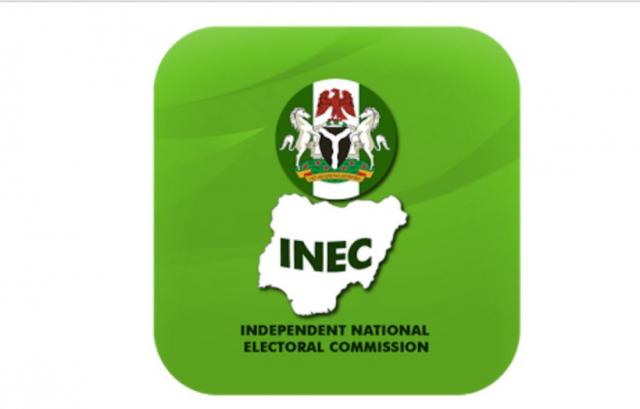Political observers and stakeholders have expressed concern over the inability of the Independent National Electoral Commission, INEC, to effectively regulate the activities of political parties in Nigeria, particularly regarding premature election campaigns.
They argued that institutions responsible for enforcing electoral laws often show weakness or deliberately ignore violations, allowing political parties—especially the ruling party—to flout regulations with impunity.
At a recent roundtable convened by INEC to discuss possible solutions to the problem of early campaigns, it became evident that the electoral umpire has limited powers to address certain violations under the current legal framework.

The development followed the appearance of large billboards across Abuja depicting President Bola Tinubu and his wife, Remi, with the message: “Grassroots Support for Tinubu 2027.” The posters were interpreted as a premature declaration of Tinubu’s second-term ambition, three years ahead of the next general election.
Although the Presidency denied sponsoring the campaign materials and ordered their removal, the directive was largely ignored. Other similar billboards, such as “Tinubu Continuity 2027,” have since appeared in major cities nationwide.
Social media platforms have also been flooded with campaign-themed songs, skits, and hashtags promoting potential aspirants.
Observers noted that INEC’s warnings to political actors have had little impact, as aspirants and their supporters continue to use public events—such as cultural festivals, project inaugurations, and religious gatherings—to subtly campaign.
Section 94(1) of the Electoral Act 2022 stipulates that public campaigning by political parties should commence 150 days before polling day and end 24 hours before the election. However, loopholes in the law have made enforcement difficult.
Speaking at the Abuja roundtable, the immediate past INEC Chairman, Prof. Mahmood Yakubu, said the law provides no sanction for campaigns conducted earlier than 150 days before elections.
“INEC, as registrar and regulator of political parties, is expected to act in the face of the brazen breach of the law on early campaigns. However, the major challenge for the Commission is the law itself.
Section 94(2) of the Electoral Act 2022 imposes mild sanctions for campaigns within 24 hours to polling day, but none for campaigns before the stipulated 150 days,” Yakubu explained.
Analysts also drew attention to Section 92(4) of the Electoral Act, which allows political parties to hold rallies or meetings “at any time for constitutional political purposes,” a provision seen as offering politicians a legal cover for early mobilisation.
Former INEC Chairman, Prof. Attahiru Jega, in a separate presentation, called for stricter laws to address premature campaigns. He proposed that all electoral offences, including early campaign violations, be clearly defined with stiffer penalties, and that both candidates and their parties—particularly incumbents—be held vicariously liable for third-party campaign activities.
He further recommended that anti-graft agencies such as the EFCC and ICPC scrutinize the funding sources of third-party campaigners and that INEC work closely with state electoral commissions to impose sanctions where necessary.
Jega also renewed calls for the creation of an Elections Offences Commission and Tribunal to handle violations, describing it as a matter of urgency before the 2027 polls.
Speaking to DAILY POST, the Convener of the Nigerian Civil Society Situation Room and former Country Director of ActionAid Nigeria, Mrs. Ene Obi, decried the widespread disregard for laws and institutions.
“We have a problem with the rule of law. INEC has not even released the timetable, yet people are already posting campaign materials. If INEC cannot enforce the law, who will? In Nigeria, we do not keep laws, and there are no real sanctions,” Obi said.
She warned against the use of official time and resources for campaign activities, stressing the need for civic education and accountability.
Also reacting, the National Coordinator of the Obidient Movement, Dr. Yunusa Tanko, accused the ruling party of violating the law through early campaigning.
“The government is already campaigning. That is against the Electoral Act, and they should be held responsible. INEC’s claim that it lacks the power to act is not true; the laws are clear,” Tanko stated.
Meanwhile, the National Assembly has proposed moving Nigeria’s next general elections from February 2027 to late 2026. The proposal is contained in the Electoral Act (Amendment) Bill 2025, which was unveiled during a joint public hearing by the Senate and House Committees on Electoral Matters in Abuja.
The bill seeks to repeal and reenact the 2022 Electoral Act, with fresh provisions to strengthen electoral integrity.
In a related development, the Senate on Thursday confirmed the nomination of Prof. Joash Amupitan as the new INEC Chairman, following his screening by lawmakers.
Amupitan succeeds Prof. Mahmood Yakubu, who recently completed his two terms, and has pledged to rebuild public confidence in the electoral process through voter education and institutional transparency.
Support InfoStride News' Credible Journalism: Only credible journalism can guarantee a fair, accountable and transparent society, including democracy and government. It involves a lot of efforts and money. We need your support. Click here to Donate
